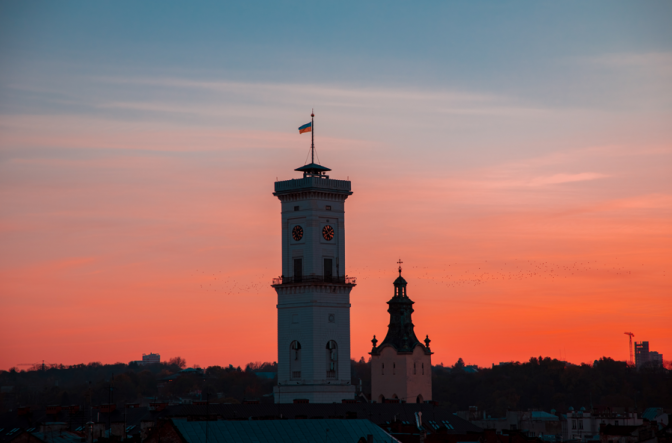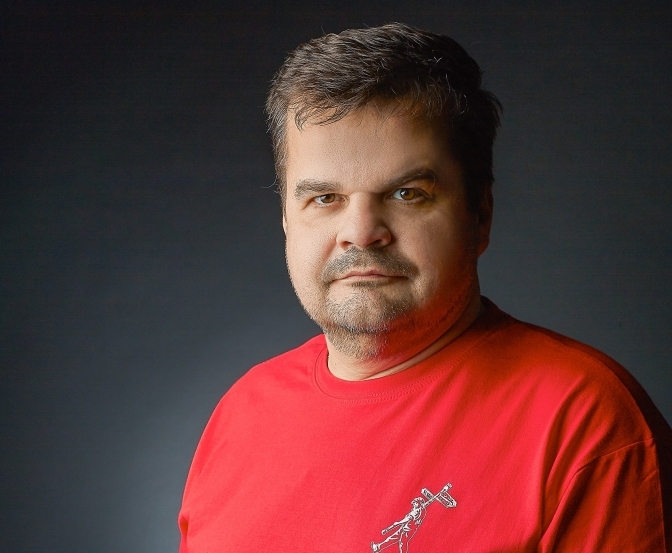
Fortress-сity, or What is Lviv for Putin
[For urgent updates please follow Ukrainian Freedom News on Telegram]
What influenced the formation of Lviv?
We don’t know for sure when Lviv was founded. 1256 is only a conditional date, just a written mention. From its very foundation, the city has gained prospects due to its successful geographical location – at the crossroads of trade routes. The disadvantage lies in the supply of water, and this is our curse, so to speak, because no one hoped that a million inhabitants would once live here. During the creation of the Galicia-Volhynia principality, this didn’t disturb anyone, because Lviv emerged as a fortress city. However, the geographical location began to attract a large number of people, especially merchants and artisans. In Lviv, there was a river, hills, which allowed to build protective structures. Trade routes changed from time to time. Volhyn cities suffered from the invaders, so they «flew out» of trade, while Lviv remained.
Lviv is considered a multinational city, was it always the case?
This large number of nationalities is a myth. The city changed its structure, but as a rule, it happened by force. For example, as the Poles arrived here in the XIV century, the majority were Ukrainians. They were driven out by German colonists, who received enormous privileges and oppressed the Ruthenians [historical name of western Ukrainians]. In the second half of the sixteenth century, Jews appeared in Lviv, and favourable conditions were created for them as well. Finally, since the XVI century, they formed a community, which in 1939 accounted for 37% of the urban population.

Read also: «We came back to 1944.» Vitalii Portnikov about the lessons of World War II
Talking about the population change, we should remember the absolute catastrophe of World War II, in particular 1946, when the Soviet government «liberated» the city. Then Poles were finally deported from Lviv under the pretext of so-called «repatriation», while Ukrainians were needed for Russians only as cheap labour. This way, the city was deprived of its Polish component. It was left, according to various estimates, 7% of the population. Before the war, the Poles constituted 50%.
Due to all these historical aspects, Ukrainians began to dominate quantitatively in the 1970s. Until 1948-50, Lviv was generally Russian-speaking. People from the east of the country, the military from Russia were brought here. People were relocated along with factories and plants. It was an occupation necessary to create a springboard for a future war with the West. The role of local Ukrainians was reduced to mostly hired labour, and they usually did not receive management positions. Unless they showed enough loyalty.
Lviv is considered to be quite a freedom-loving city, there was often resistance here, wasn’t it?
Of course, Lviv is freedom-loving, but also people in Krakow aren’t slaves, in Vienna they are freedom-loving too. Our territory was under the influence of the totalitarian Soviet system for only a generation and a half, while Eastern Ukraine – for two and a half generations. We did not have a famine, weren’t intimidated to death, and most importantly, we had a historical memory. If the Soviet government had lasted in Western Ukraine for another thirty years, we would have become the second Donbas.
As for the centre of resistance – yes, we can say that the dissident movement was stronger here than in other regions. But I want to remind you that Stus is not from Lviv, nor is Chornovil. These people were inspired by the city, had good company here. At the same time, regarding collaborators – Taras Kozak is from Lviv, Medvedchuk’s family is from the west of Ukraine.
What is Lviv for Putin?
A great threat. Even today’s Kyiv is a threat to it, because any success of these territories – financial, economic, scientific, cultural – is a danger to the «horde».
Putin is bombing Ukraine because, in his view, everyone who speaks Russian is his property. He believes that he has the right to do with this person whatever he wants. When a person speaks a different language, she can be his enemy. But not property. He is not interested in the west of Ukraine, because here allegedly live former «slaves» who have long obeyed Poland and Austria and therefore lost touch with the «Russian world». From Putin’s point of view, we are incorrigible.
Do you see Lviv as one of the cultural centres where the elite is educated?
To be an elite, we need a very high-quality education, high-quality specialists. It’s not just about technical education, because if we don’t have a good understanding of humanities education, it’s also a big miss. When Lviv becomes a city where people will dream to study, when they will have memories of their student years related to Lviv, they will be ready to do a lot for the city, and then it will improve significantly. When many leading universities appear in Lviv, you’ll not recognize it after this change.
Read also: Timothy Snyder’s 10 reasons why Ukrainian victory is vital for the world
Lviv made some attempts to gain such a role in the interwar period, when Lviv University was pretty strong. There were cases when universities dictated their policies. Conventionally speaking, if the professors saw that the situation was going «in the wrong direction», they simply appealed to their graduates, who at that time were running the country.
What changes will this war bring to Lviv?
I’m absolutely convinced that after the victory of Ukraine, the city will experience an incredible tourist flow. A huge number of people out of curiosity will want to see what a miracle it is. Also, a large number of people will want to invest in Ukraine, because, judging by the trends we see now, Ukraine will need reconstruction.
Victoria Savitska, translated by Vitalii Holich
Follow us on Facebook and Instagram. Lviv Now is an English-language website for Lviv, Ukraine’s «tech-friendly cultural hub.» It is produced by Tvoe Misto («Your City») media-hub, which also hosts regular problem-solving public forums to benefit the city and its people.


